Custom Engagement Solutions
Unlock tailored solutions with a free, no-obligation strategy session.
Expert Developers & Engineers on Demand
Scale Your Team with Skilled IT Professionals
Expert Guidance for Digital Transformation
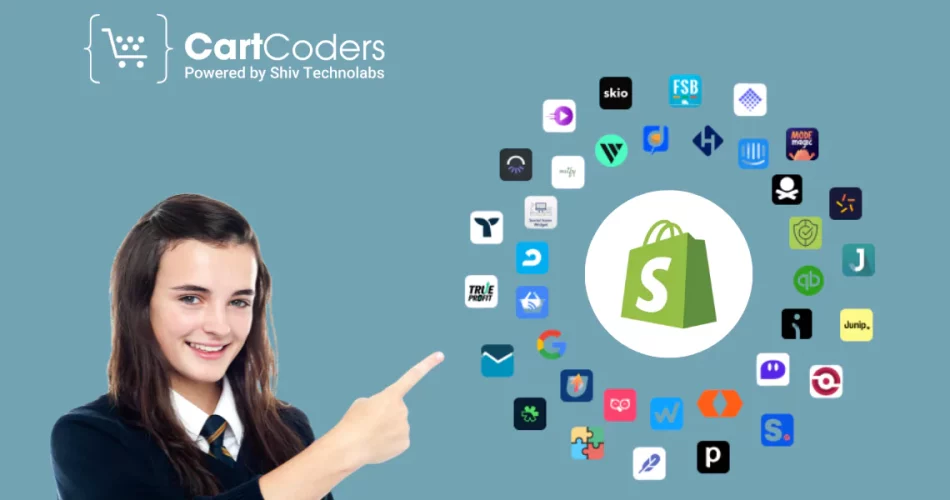
Running a Shopify store requires tools that simplify management and improve efficiency. Shopify marketplace apps help sellers expand their reach by allowing multichannel selling across various platforms. These apps help manage inventory, process orders, and improve sales performance.
With the right Shopify marketplace solutions, businesses can connect their stores with platforms like Etsy, eBay, Walmart, and Amazon. This blog highlights the best Shopify marketplace apps for sellers, helping them choose the right tools for growth.
Shopify marketplace apps integrate online stores with third-party platforms, allowing sellers to sync their Shopify store with multiple marketplaces. These apps enable businesses to list products on different platforms, track inventory, and manage orders from a single dashboard.
Using Shopify multi-vendor marketplace apps, sellers can add multiple vendors to their stores, automate commission calculations, and handle payments smoothly. These tools also improve customer engagement by ensuring accurate order processing and timely shipping updates.
Choosing the right Shopify marketplace app is crucial for businesses looking to expand through multichannel selling. The right app should simplify operations, improve efficiency, and allow businesses to sync Shopify store with multiple marketplaces without complications. Below are the key features to look for when selecting the best Shopify marketplace apps for sellers.
The app should support selling on multiple platforms like Amazon, eBay, Walmart, and Etsy, allowing centralized management.
Also Read: How to Build a Website Like Amazon: Steps, Features, and Costs
Automatic stock updates across platforms prevent overselling or stockouts, ensuring smooth operations.
A good app enables bulk uploads and edits, saving time when managing large inventories.
Orders from different marketplaces should sync into one dashboard, streamlining fulfillment and reducing manual work.
The ability to set different prices and promotions for each marketplace helps sellers stay competitive.
A simple interface with sales reports and analytics helps sellers track performance easily.
For marketplace owners, the app should manage multiple sellers, commissions, and order distribution efficiently.
Built-in support for major shipping carriers ensures faster deliveries and tracking updates.
Selecting the right Shopify marketplace app can make multichannel selling more manageable while helping businesses scale efficiently. By focusing on these essential features, sellers can ensure a smooth marketplace experience while reaching more customers across multiple platforms.
Also Read: The Pros and Cons of Shopify Marketplace Connect: An In-Depth Review
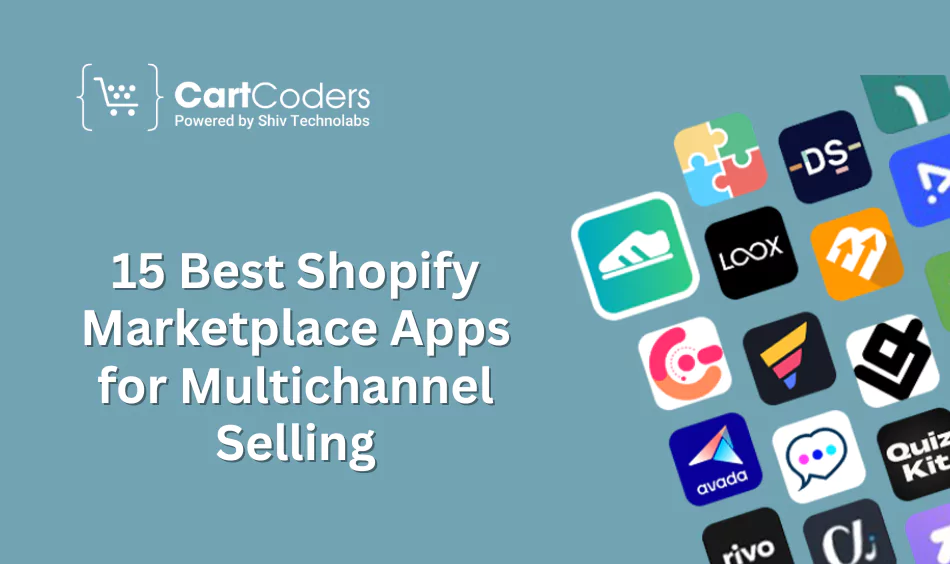
Expanding a Shopify store beyond a single platform is essential for increasing sales and reaching a larger audience. The best Shopify marketplace apps for sellers help connect stores to multiple marketplaces like Amazon, eBay, Walmart, and Etsy while managing inventory, orders, and pricing from a single dashboard. Let’s discuss the top Shopify marketplace apps for multichannel selling for different businesses.
This app helps Shopify store owners list and sell products on Etsy, a popular marketplace for handmade, vintage, and craft items. It simplifies product synchronization, order management, and inventory tracking between Shopify and Etsy, saving time and reducing errors.
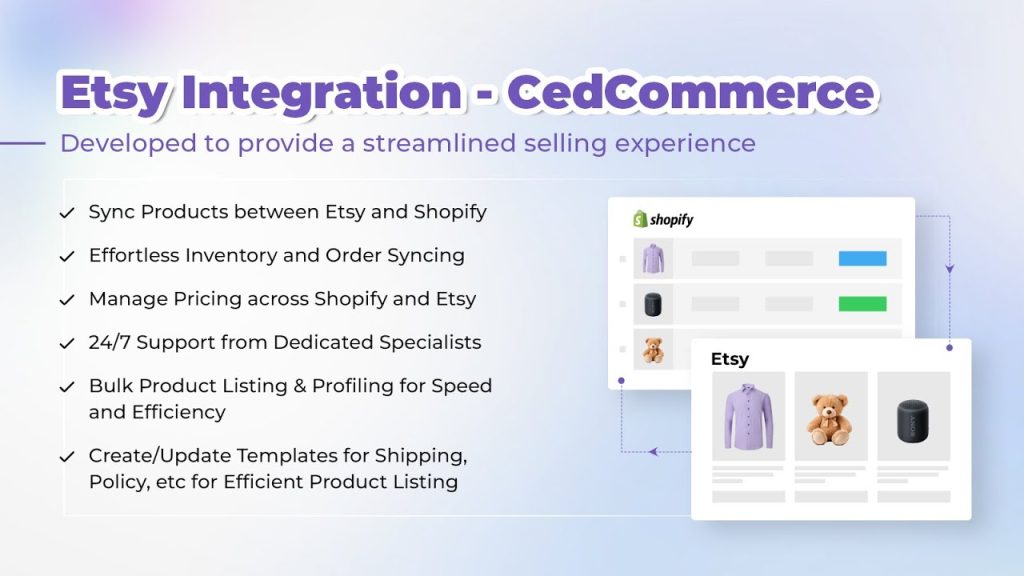
Key Features of Etsy Marketplace Integration
Who Should Use It?
This app allows Shopify sellers to list their products on Google Shopping, improving product visibility and driving more traffic to their store. It automates product feed management and syncs Shopify inventory with Google Ads and Merchant Center.

Key Features of Google Shopping Feed
Who Should Use It?
This multi-vendor Shopify marketplace app allows store owners to create their online marketplace. It helps manage multiple sellers, commissions, and product listings within a single Shopify store.
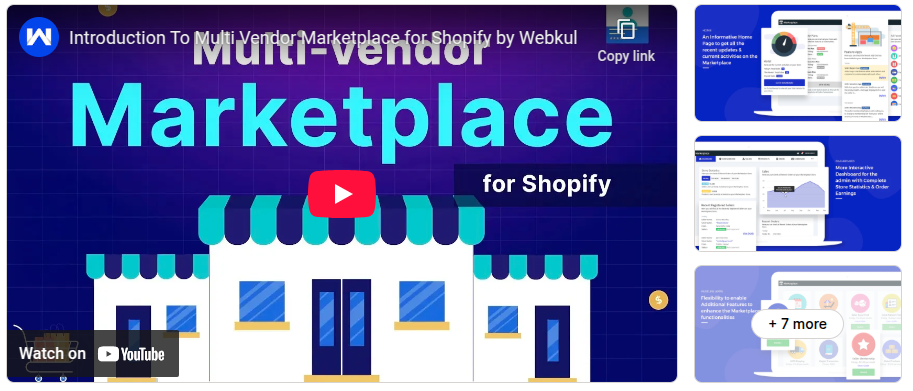
Key Features of Multi Vendor Marketplace
Who Should Use It?
This app helps sellers list and sell products on Walmart Marketplace, one of the largest online retailers in the U.S. It automates inventory updates, pricing, and order management between Shopify and Walmart.

Key Features of Walmart Integration
Who Should Use It?
Fruugo is an international eCommerce marketplace that allows Shopify sellers to reach global customers. This integration helps sellers list products in multiple currencies and languages, expanding international sales.
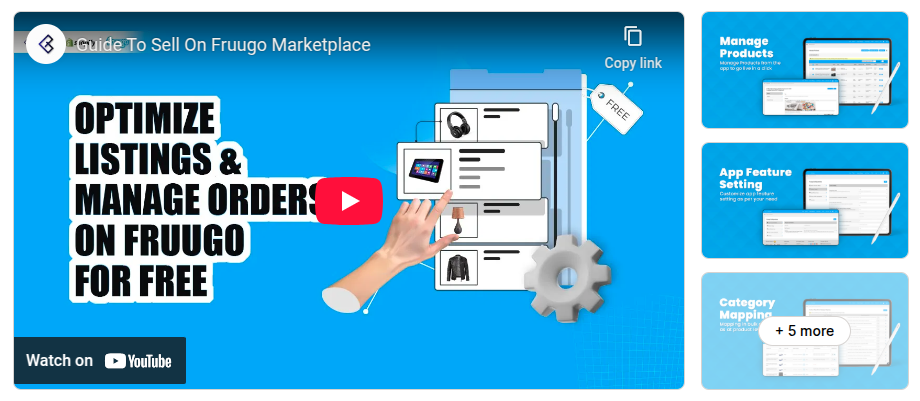
Key Features of Fruugo Marketplace Integration
Who Should Use It?
This multi-vendor Shopify marketplace app allows store owners to convert their Shopify store into a multi-seller marketplace. Vendors can list their products, manage orders, and handle their inventory independently.
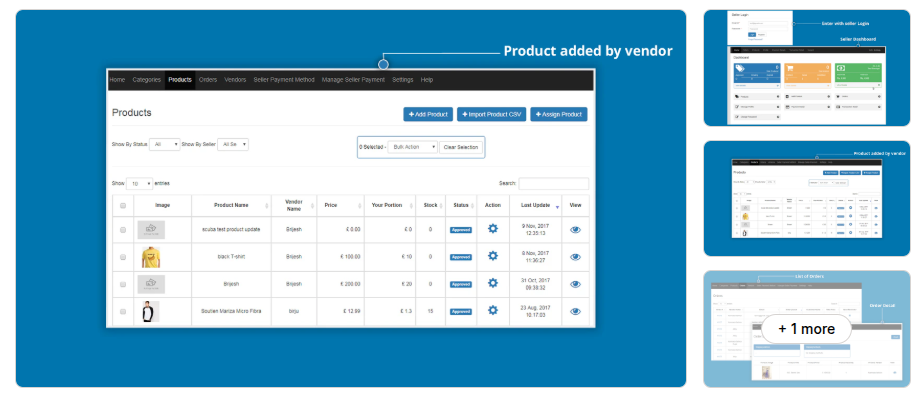
Key Features Multi Seller Marketplace
Who Should Use It?
Newegg is a well-known electronics and tech-focused marketplace. This integration allows Shopify sellers to list their products on Newegg while managing orders and inventory from one place.

Who Should Use It?
Koongo helps Shopify sellers list products on multiple marketplaces, including eBay, Amazon, and Google Shopping. The app simplifies feed management, making it easier to adjust pricing, inventory, and product data across different sales channels.
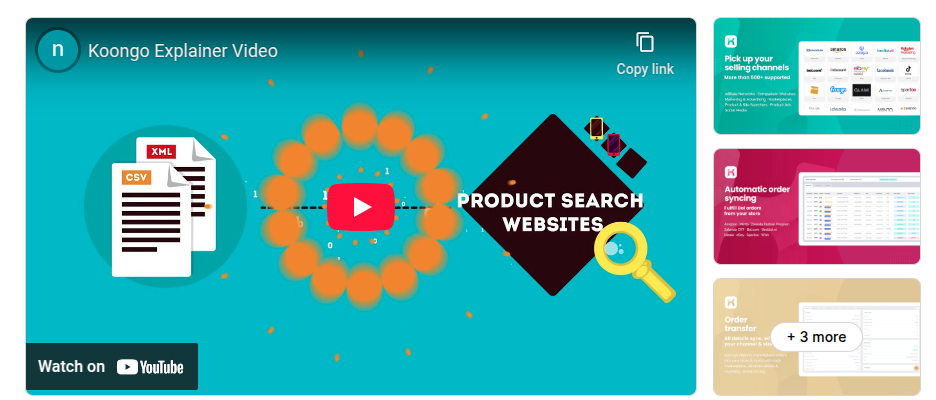
Key Features Koongo
Who Should Use It?
Catch Marketplace is an Australian-based eCommerce platform. This integration allows Shopify sellers to list products on Catch, manage inventory, and sync orders automatically.
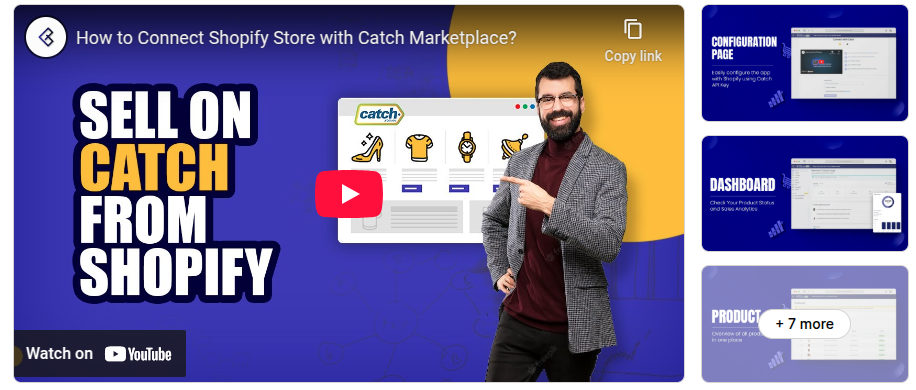
Key Features:
Who Should Use It?
Wish is a global marketplace known for affordable and trendy products. This app connects Shopify stores to Wish, simplifying product listings and order fulfillment.
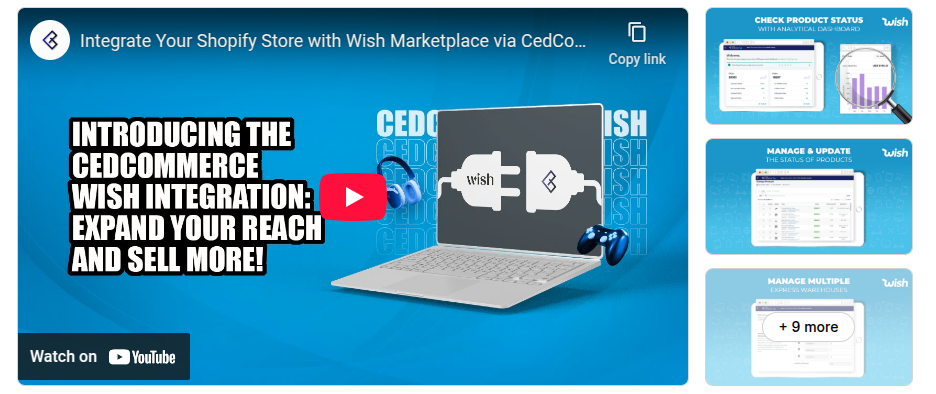
Key Features:
Who Should Use It?
Omnivore connects Shopify stores to multiple marketplaces, helping sellers manage listings, pricing, and order fulfillment efficiently.
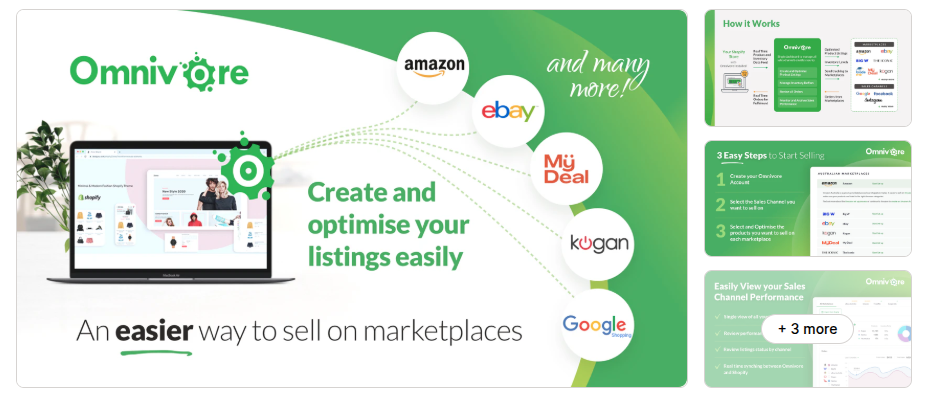
Key Features:
Who Should Use It?
This app allows Shopify sellers to list and sell products on eBay, automating inventory management and order fulfillment.
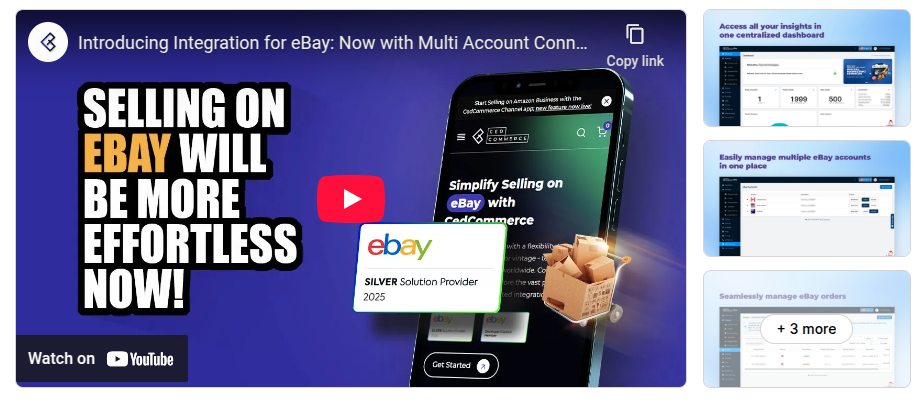
Key Features:
Who Should Use It?
Sellbrite helps Shopify sellers expand their reach by listing products on Amazon, Walmart, eBay, Etsy, and other marketplaces. It simplifies multichannel selling, allowing businesses to manage inventory and orders from a single platform.
Key Features:
Who Should Use It?
Nembol allows sellers to list and manage products across multiple platforms, including Shopify, Amazon, eBay, and Facebook. It automates inventory updates, making it ideal for businesses handling large product catalogs.
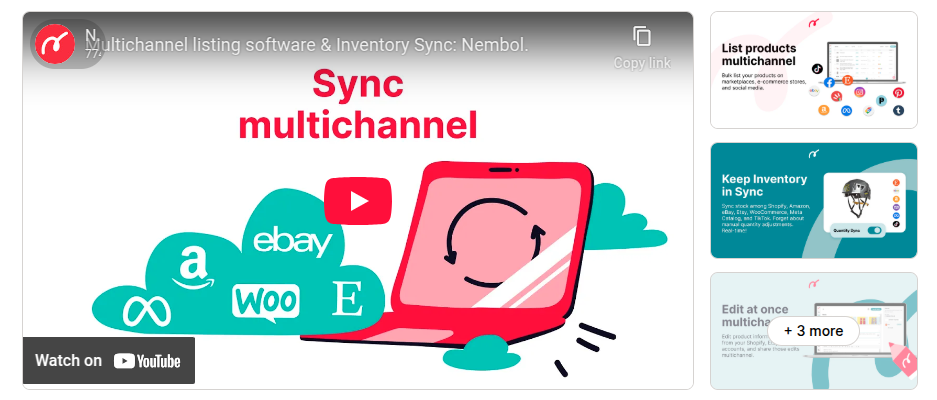
Key Features Nembol
Who Should Use It?
Shoppingfeed connects Shopify stores to over 1,000 sales channels, including Amazon, eBay, Walmart, Google Shopping, and Facebook Marketplace. It automates product feed management, ensuring accurate listing updates.
Key Features Shoppingfeed
Who Should Use It?
These 15 best Shopify marketplace apps for sellers make multichannel selling easier by automating inventory, pricing, and order management. Selecting the right Shopify marketplace app depends on business goals, marketplace preferences, and operational needs.
Also Read: Top Ideas for Shopify Marketplace Development

With the growing demand for multichannel selling, Shopify store owners need the right tools to expand their reach across multiple platforms. The best Shopify marketplace apps for sellers provide automation, inventory management, and seamless order processing across different sales channels. However, choosing the right Shopify marketplace app requires careful evaluation of various factors.
1. Compatibility with Your Business Model
Some Shopify marketplace solutions cater to multi-vendor stores, while others focus on individual sellers. Choose an app that aligns with your selling strategy.
2. Integration with Multiple Platforms
If your goal is multichannel selling, select an app that supports multiple marketplaces. Ensure the app provides real-time inventory syncing.
3. Pricing and Features
Compare top Shopify apps for multichannel selling to find one with the best pricing and features. Some apps offer free trials, helping sellers test functionalities before committing.
4. Ease of Use
A Shopify multi-vendor marketplace app should have a simple interface. Look for apps with automation tools to save time.
5. Customer Support
Choose an app that provides reliable customer support for troubleshooting integration issues.
Also Read: Expert Guidance: Choosing the Right Shopify Marketplace Development Partner
Creating a successful Shopify marketplace requires expert development, seamless integration, and ongoing support. CartCoders is a trusted Shopify Marketplace development company offering tailored Shopify marketplace solutions to help businesses scale effortlessly.
CartCoders provides expert Shopify marketplace development servicestailored to business needs. Whether you’re creating a multi-vendor Shopify marketplace app or integrating with global platforms, their custom solutions ensure smooth operations and long-term success.
Using Shopify marketplace apps allows sellers to expand into multichannel selling with minimal effort. The apps listed above help businesses sync Shopify store with multiple marketplaces while ensuring efficient inventory and order management.
Choosing the best Shopify marketplace apps for sellers depends on business needs, ease of integration, and marketplace compatibility. CartCoders offers tailored Shopify development solutions, making it easier for sellers to manage Shopify marketplace solutions effectively. Reach out to CartCoders now!
Projects delivered in 15+ industries.
95% retention rate, building lasting partnerships.
Serving clients across 25+ countries.
60+ pros | 10+ years of experience.